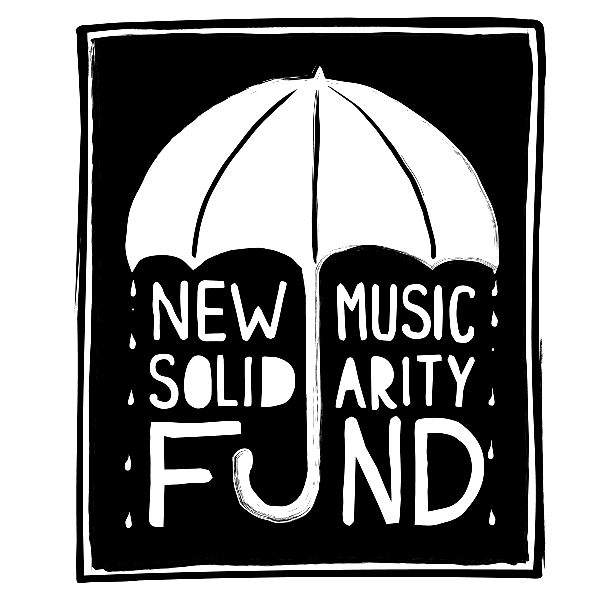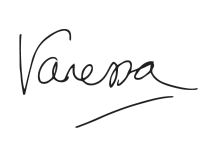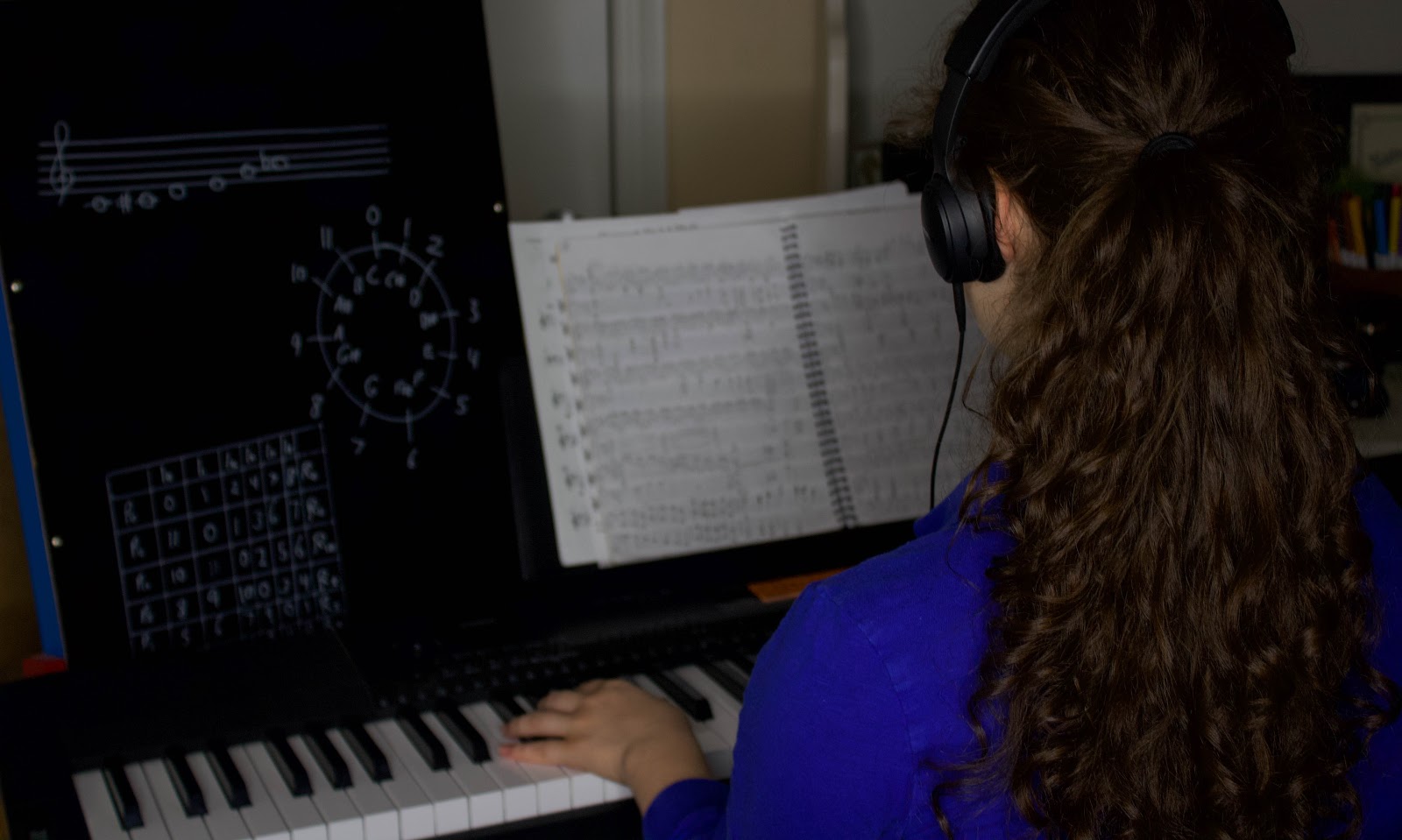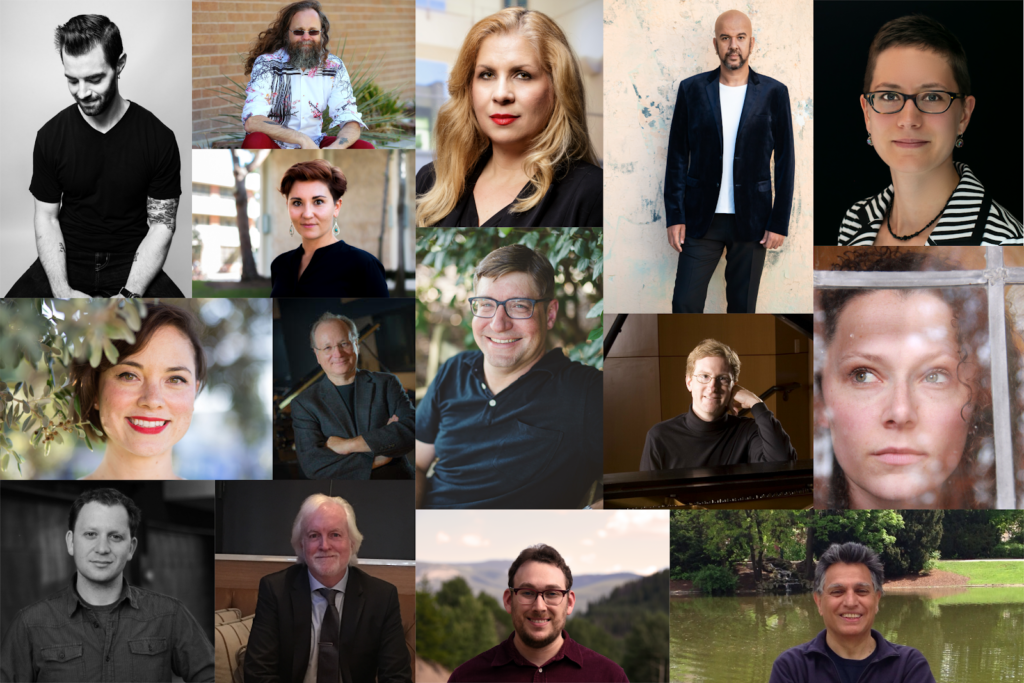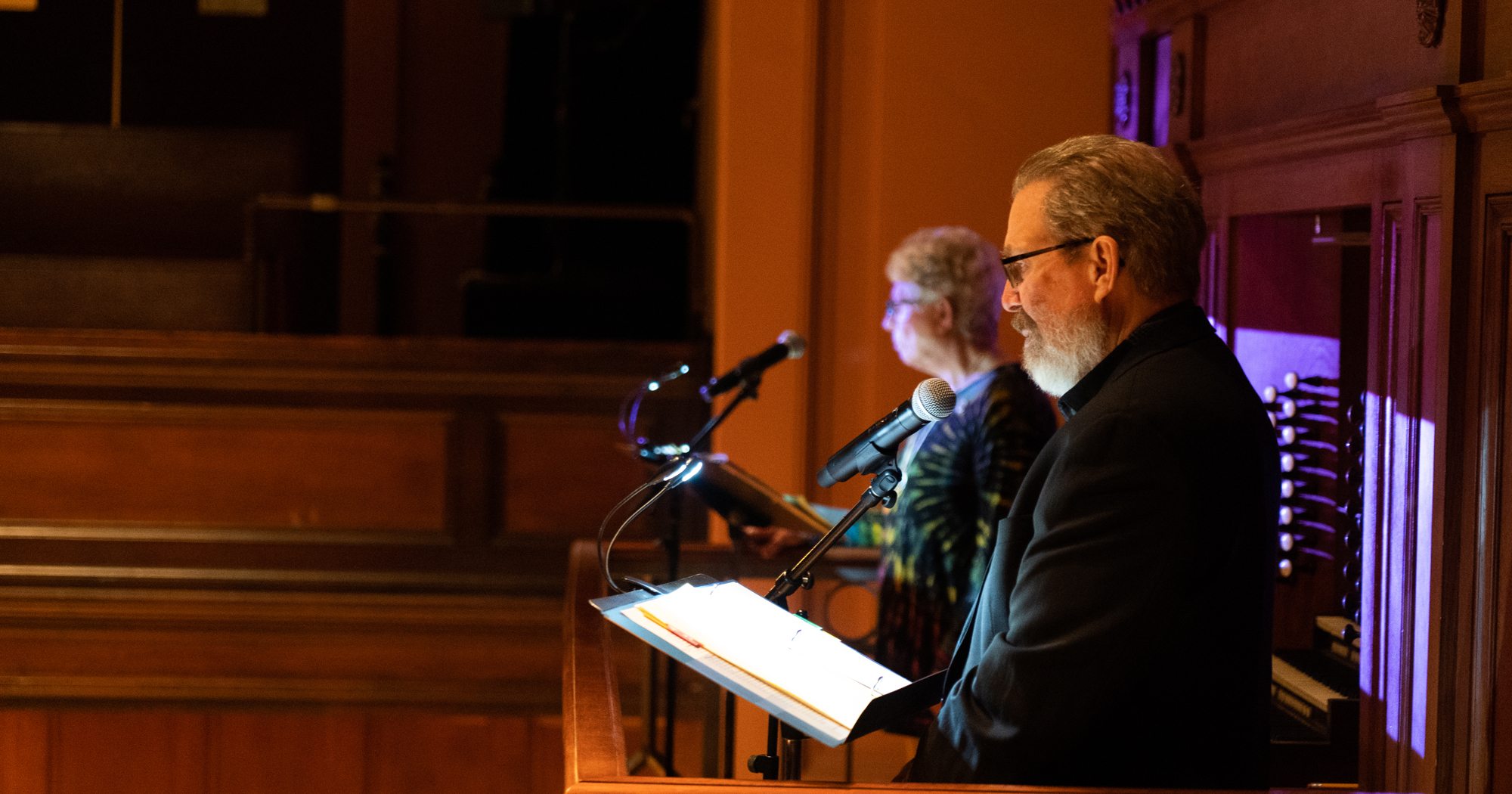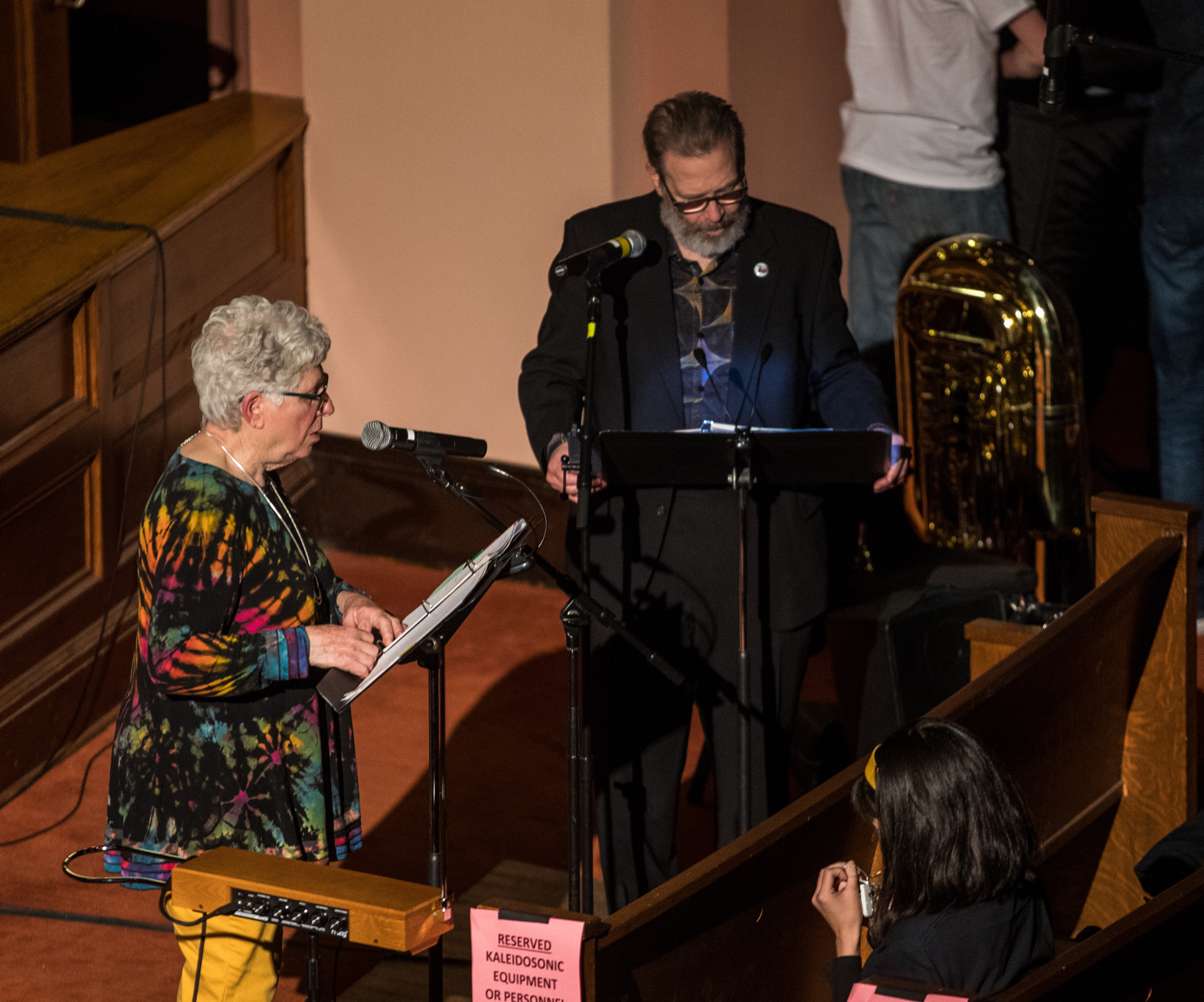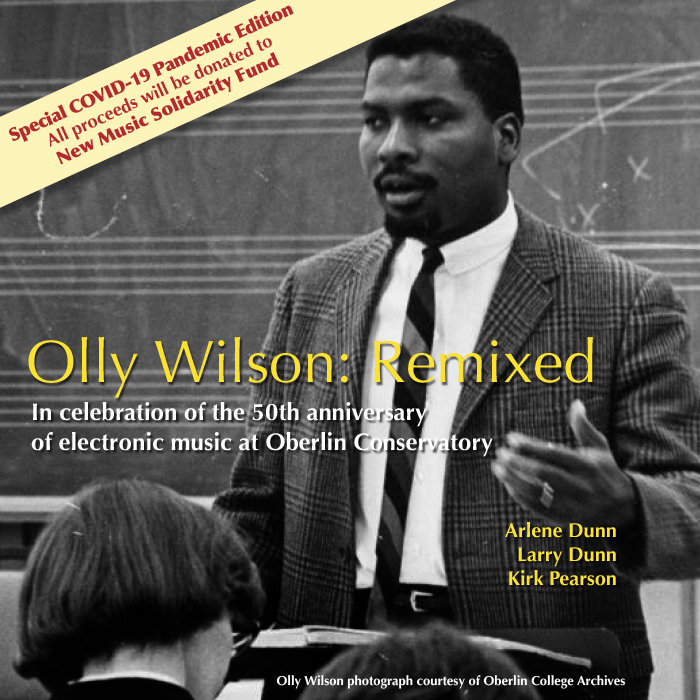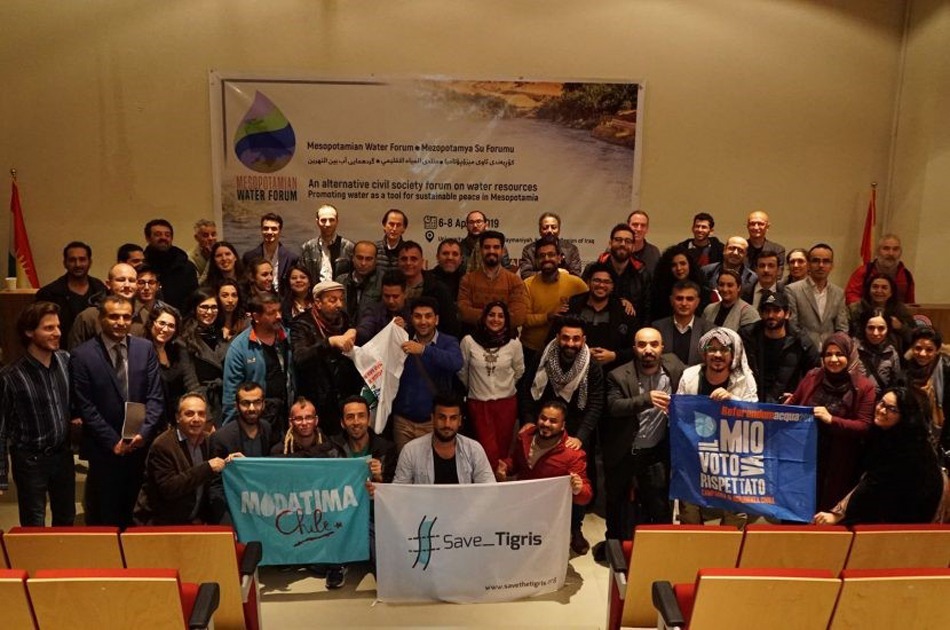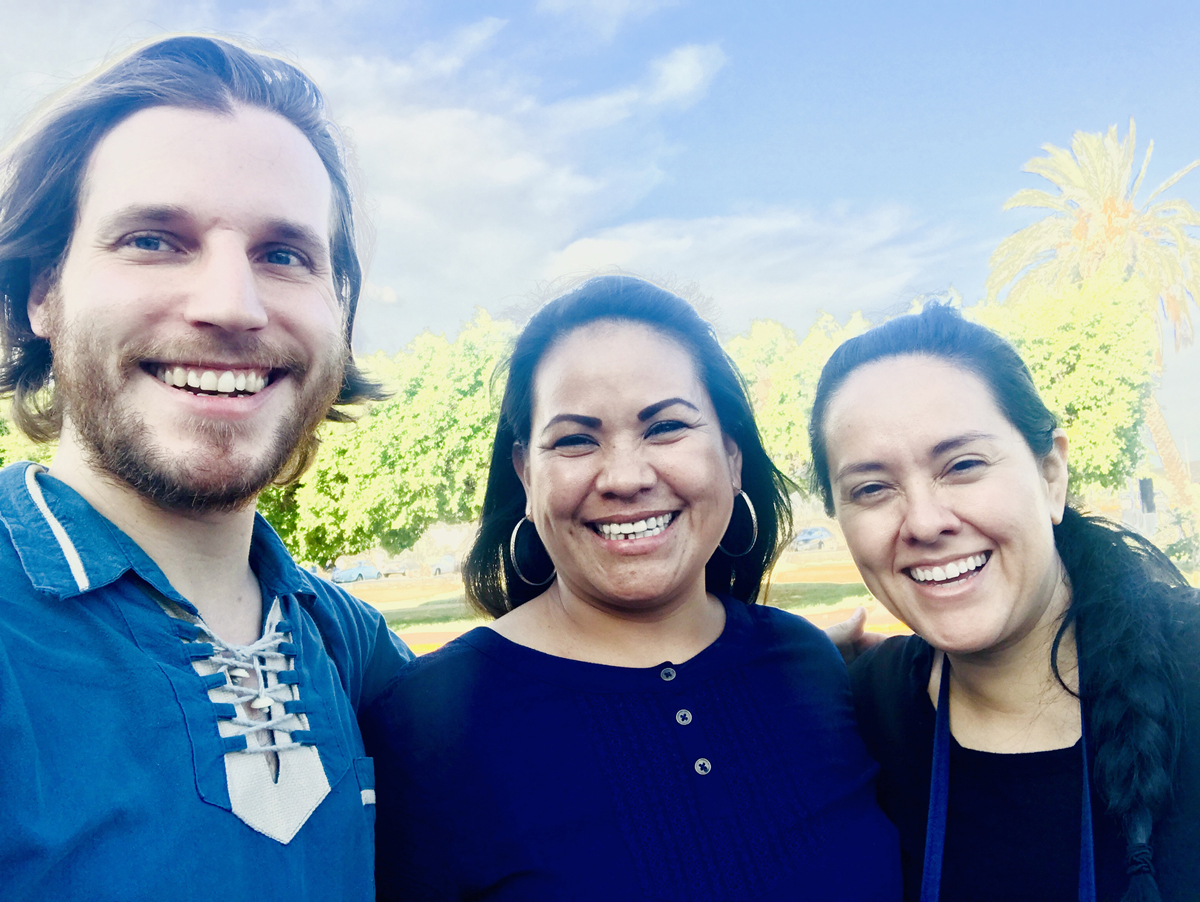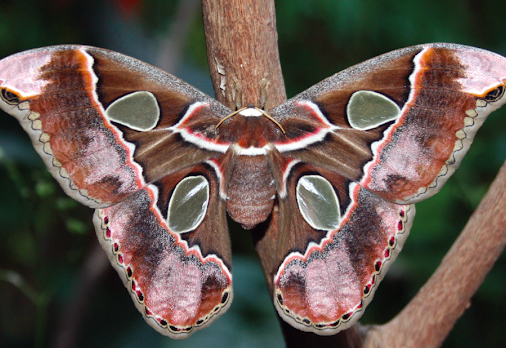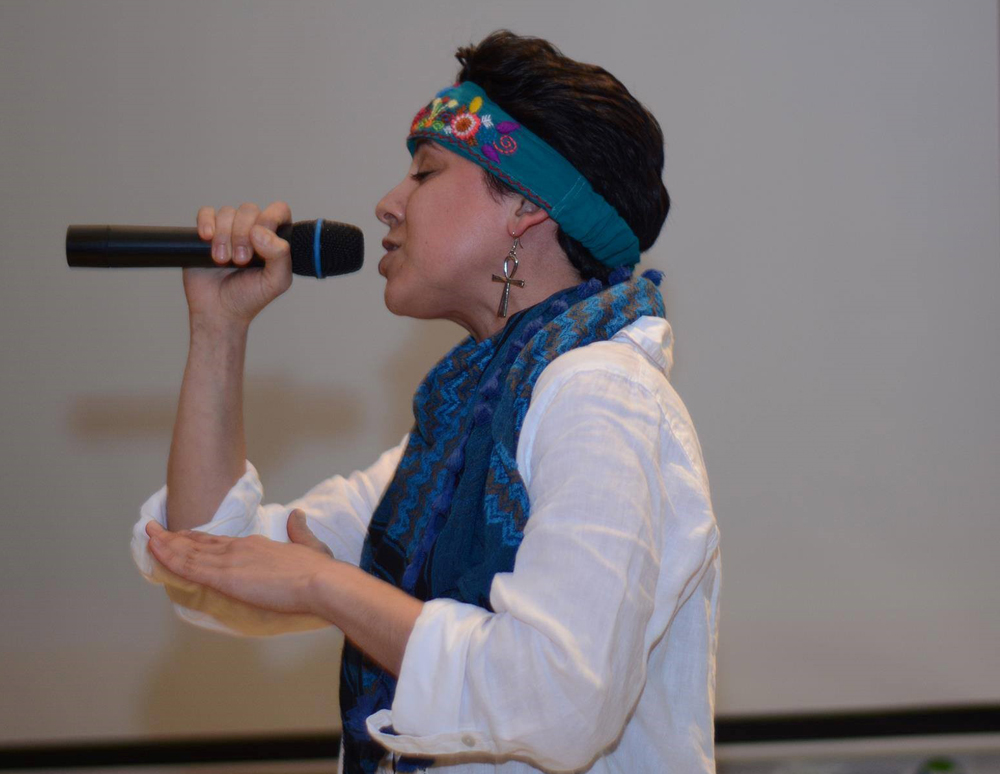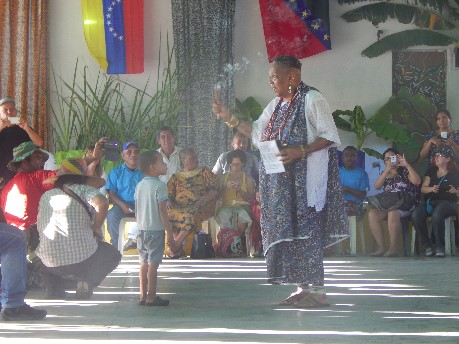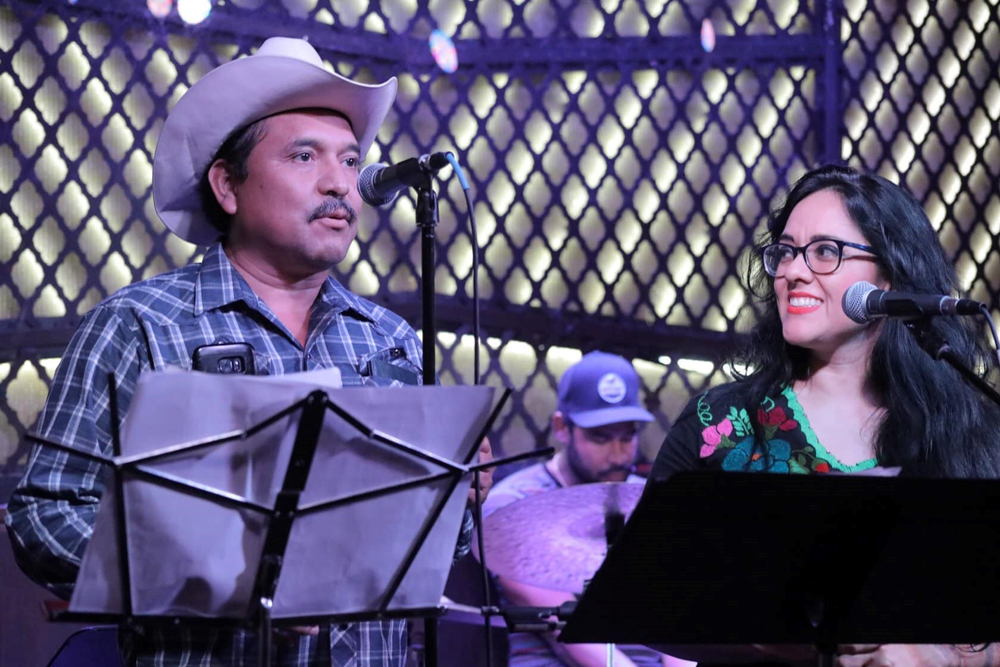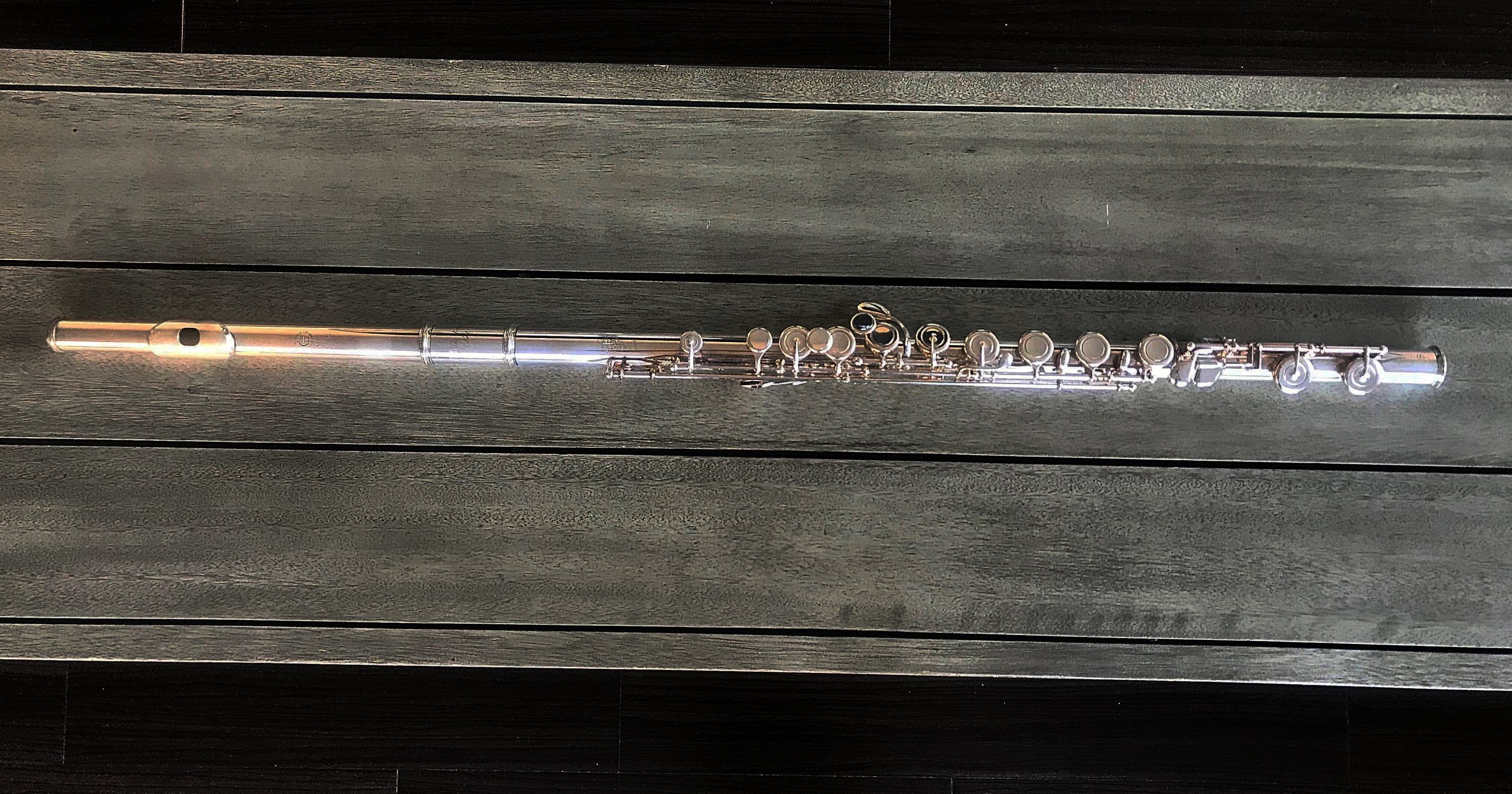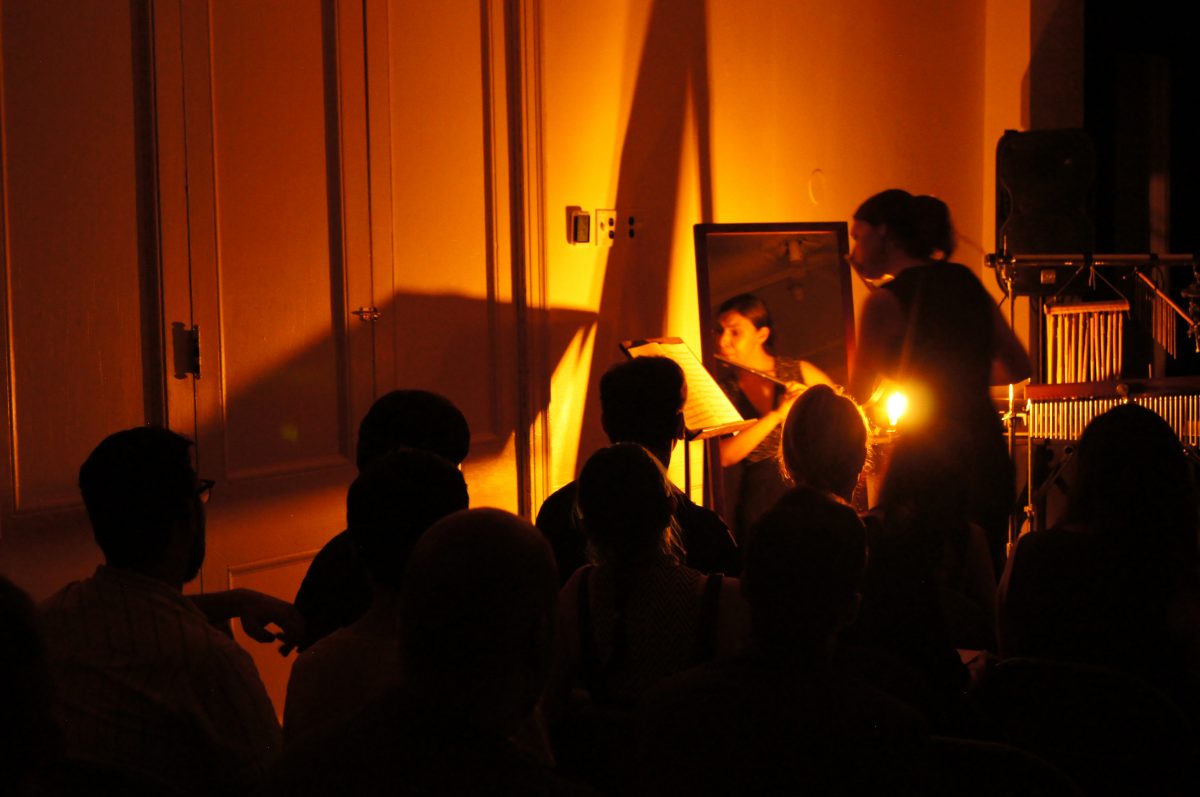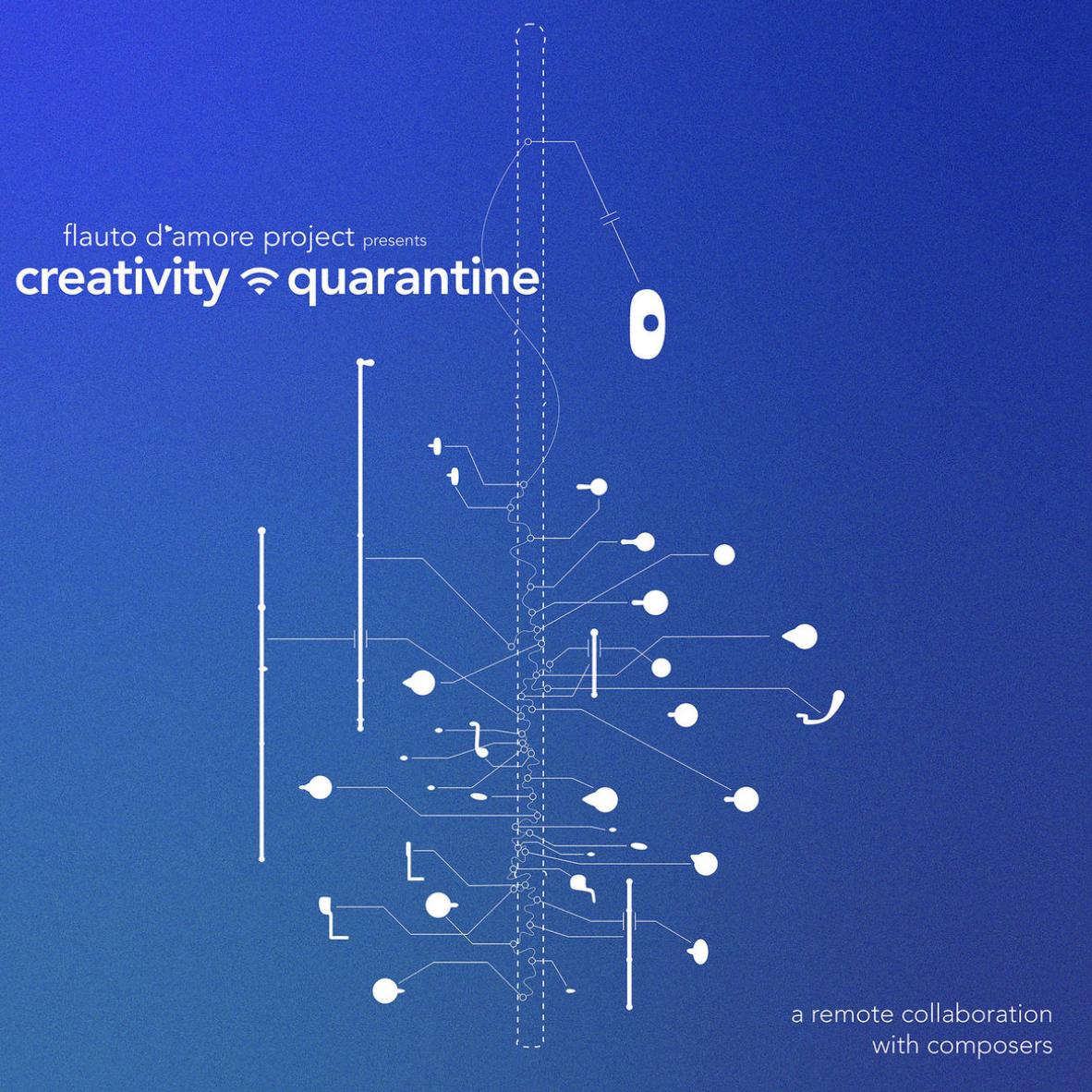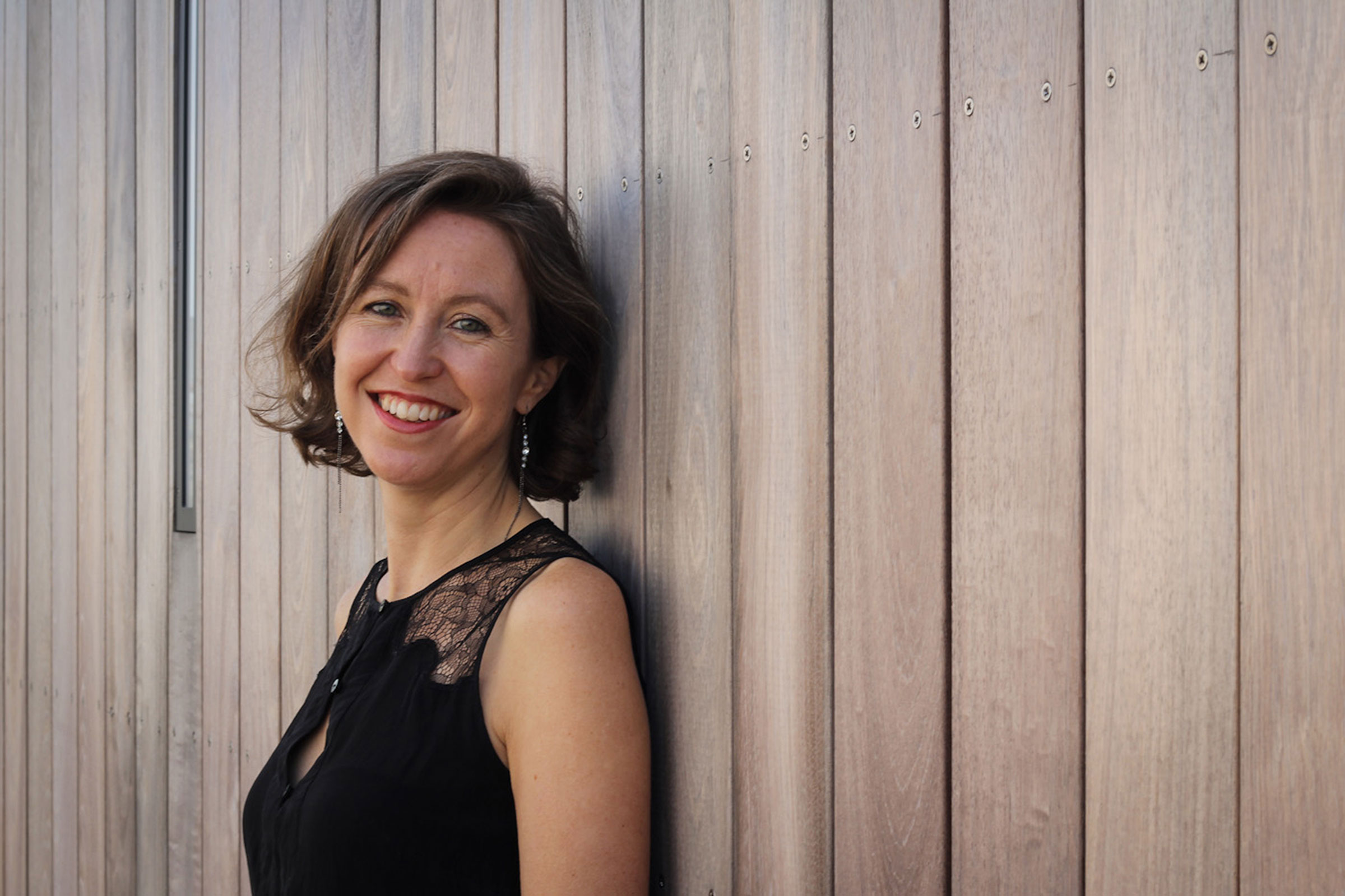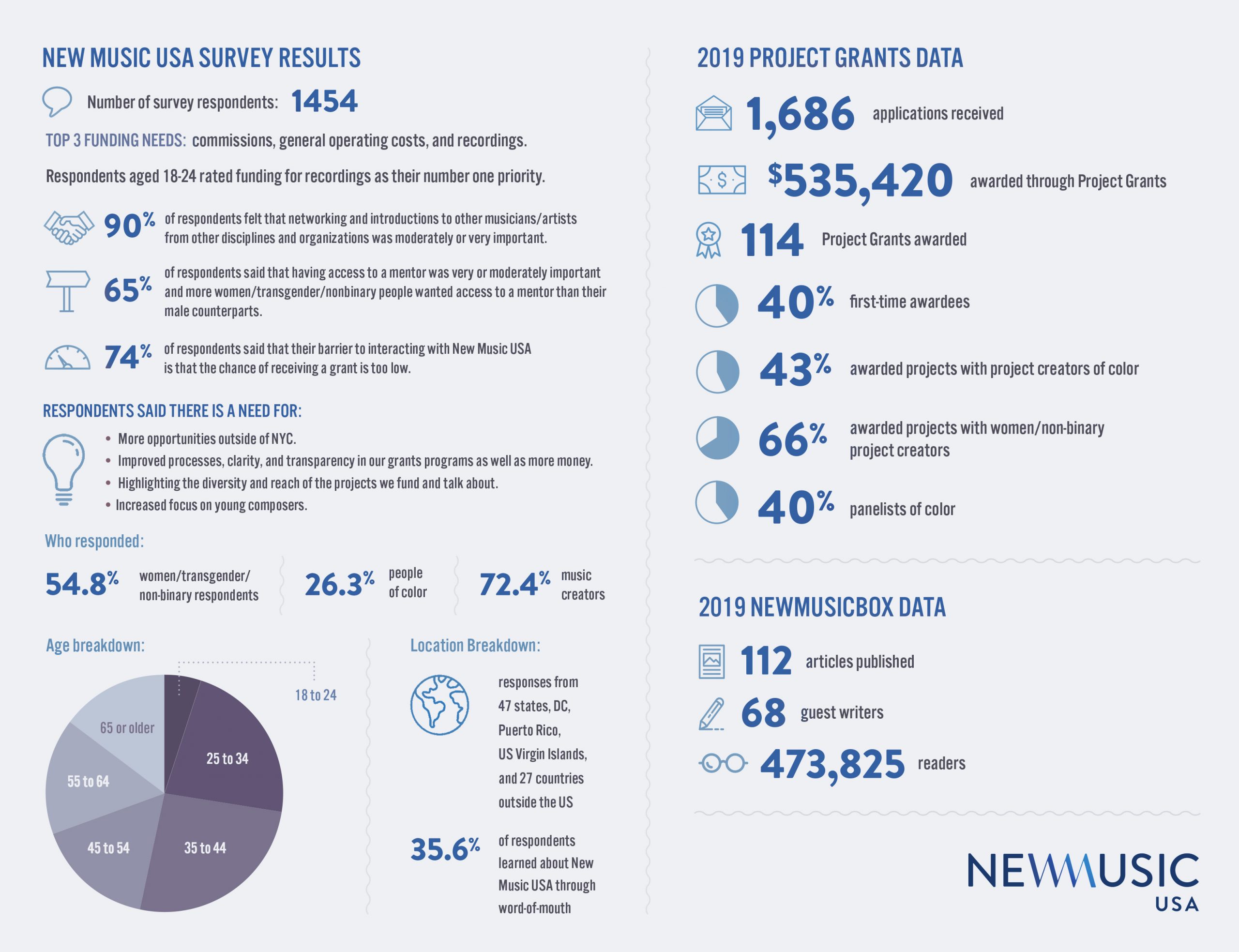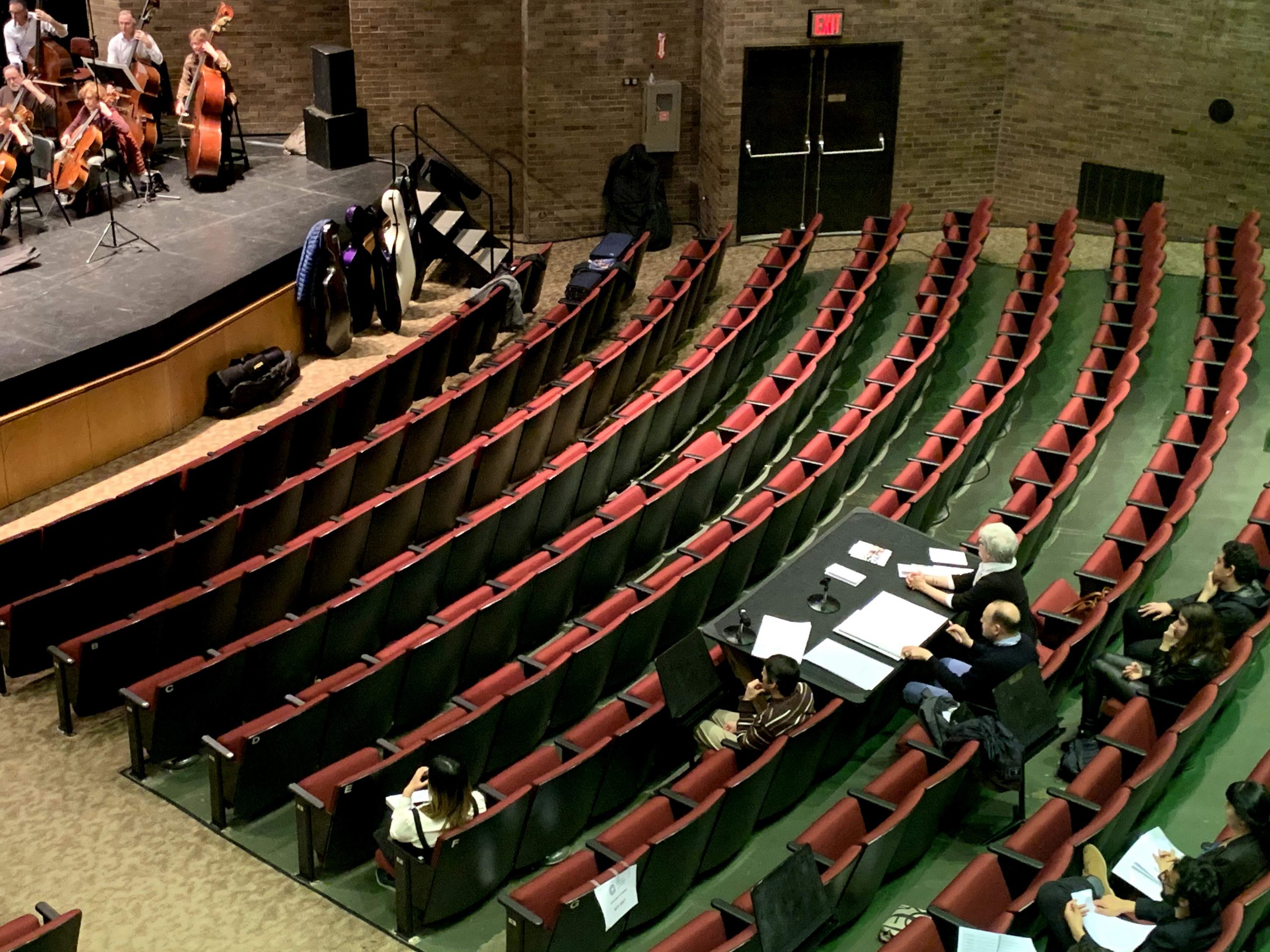
Like everyone else, we have been trying as best as possible to carefully monitor the spread of the Coronavirus worldwide and, as you can imagine from our vantage point at New Music USA, paying particular attention to what its impact has been on the new music community (e.g. the cancellation of concerts/conferences, the closure of schools and a switch to online distance learning where possible, and on and on, aside from the health and safety fears that everyone in the world is currently facing) and how we can best be of help. To that end, we thought it would be helpful to offer observations and constructive ideas of people from a variety of vantage points within our sector in NewMusicBox in the hopes that it can lead us toward a consensus about what might be best practices for how to deal with this extraordinary and unprecedented situation moving forward.
To that end, we posed a series of seven questions to: producer and marketing/PR consultant Alanna Maharajh Stone; composer Katherine Balch; Andrew Bliss, Artistic Director of Nief-Norf; improvising vocalist, composer/lyricist, and teacher Fay Victor; Opera Omaha’s General Director Roger Weitz; Kate Nordstrum, founder, curator, and producer of the Liquid Music Series and executive and artistic director of The Great Northern; David Skidmore of Third Coast Percussion; and Ashley Bathgate, cello soloist and member of the Bang on a Can All Stars.
In addition, we’ve also featured photos here from American Composers Orchestra’s 2020 Underwood New Music Readings held on March 12 and 13 in Aaron Davis Hall at The City College of New York taken by ACO’s President and CEO Edward Yim. Closed to the public due to the growing concerns about the spread of COVID-19, the readings were limited to orchestra musicians, the six composers featured, the mentor composers for the program, and ACO staff, but the event was recorded for a future stream available to the ACO’s audience. Unfortunately the deepening of the crisis in the days since then has meant that even this small a gathering is no longer possible, making any kind of orchestra performance unlikely for the foreseeable future. But video footage from the readings is currently being edited and ACO plans to post an online stream sometime next week. To be notified, please sign up to be added to an email list at the following URL: https://mailchi.mp/americancomposers/subscribe.
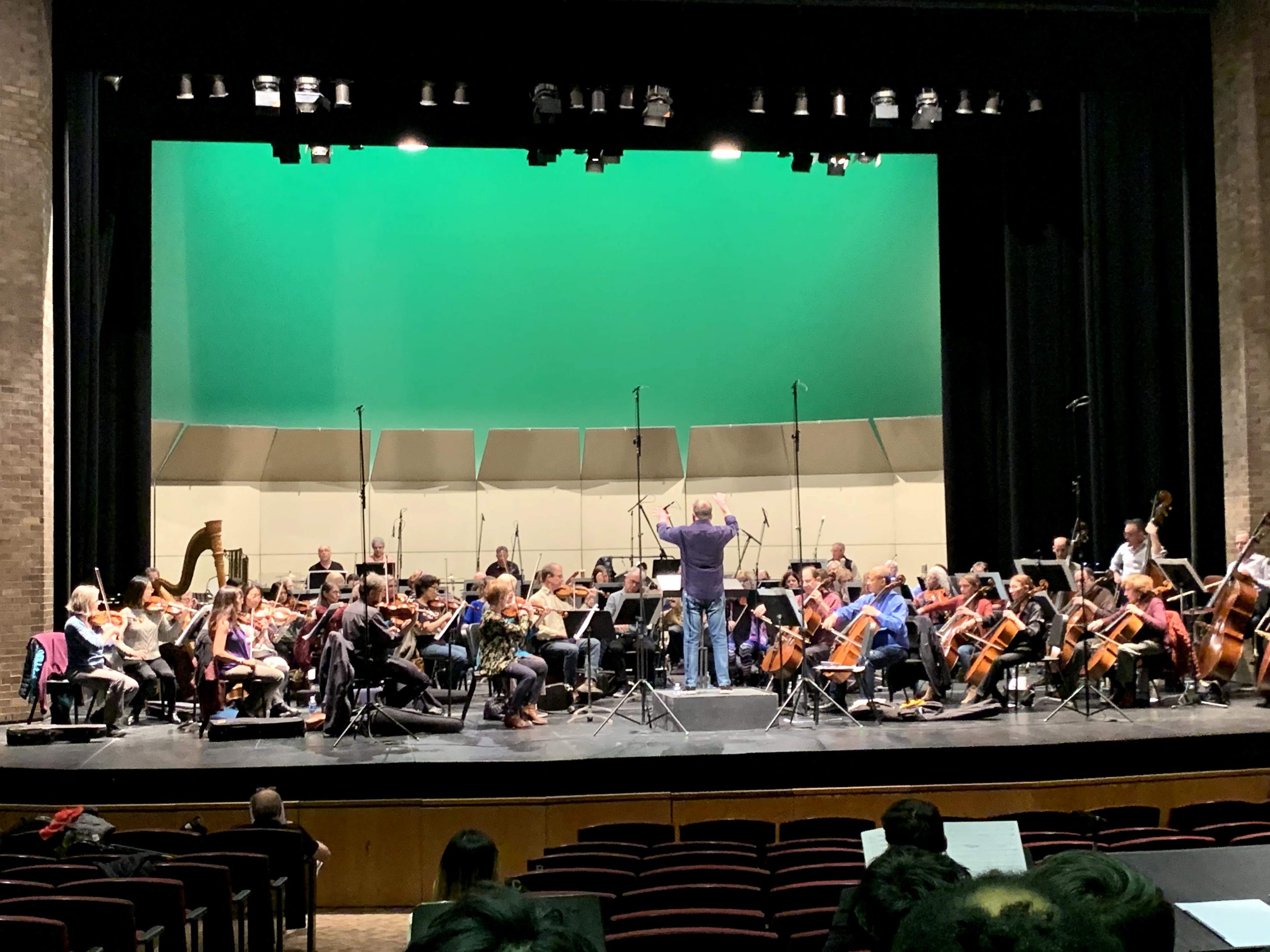
As a safety precaution against further spread of COVID-19, American Composers Orchestra under the direction of George Manahan performed to a nearly empty house consisting of just the six composers whose music is being featured, composer mentors, and ACO staff in Aaron Davis Hall at City College on March 12, 2020. (ACO photos by Stephanie Polonio, courtesy ACO.)
We remain eager to hear from more people in the community to hear about your concerns as well as creative solutions for how to cope in these extraordinary times. Please add your thoughts in our Comments section below and stay safe and well.
1. How have the recent concerns over the spread of COVID-19 affected your activities as a musician/composer/presenter/etc.?
Alanna Maharajh Stone: Thanks so much for the opportunity to weigh in on these existentially trying times. I have had two concerts recently cancelled. It’s of course disappointing for everyone involved but given the circumstances of our public health crisis, it must be done.
Katherine Balch: Like everyone else right now, as far as I know, pretty much every concert scheduled for me between last week and the end of April has been cancelled. Hopefully, postponed. While some of these cancellations are very disappointing, I am more concerned for my performing freelance friends.
“I didn’t think it would impact the musical communities I interact with because our audiences and spaces are on the smaller side.”
Andrew Bliss: Like many of us, COVID-19 has been at the heart of discussion now since for several weeks. I’ve been anticipating cancellations (which have occurred, one by one) and have had all professional work halt since early March until at least the end of May at this point. For me, this has included festivals in the U.S. and abroad, educational residencies, university teaching, plus student activities and performances. Most notably here in Knoxville, the Big Ears Festival was canceled, which was both very disappointing and, of course, very necessary.
Fay Victor: As serious as I took the news, I didn’t think it would impact the musical communities I interact with because our audiences and spaces are on the smaller side. So up until last week, I was out attending events as normal. This past week there has been a sharp shift toward cancellations with venues looking out for the safety of their employees and patrons and lest we not forget that we live in a litigious society as well.
Unfortunately this has impacted me greatly. I’ve lost a week at the Stone (it would have been my first residency there for my own work); a CD release at Joe’s Pub, 4 days of shows in Chicago and more. Some venues have offered to reschedule immediately, one offered payment anyway and the others – well, I’m waiting to hear what will happen.
Roger Weitz: On March 12, Opera Omaha made the decision to postpone its third annual ONE Festival (https://onefestivalomaha.org/) with performances and events stretching March 20-April 5. We sent the communication below to our artists and within 36 hours of this communication, venues in Omaha began shutting down.
From: Roger Weitz
Sent: Thursday, March 12, 2020 1:53 PM
To: All Opera Omaha
Subject: a message from Roger Weitz and James Darrah
Dear Festival Family,
The strength of Opera Omaha and the ONE Festival is you: the artists, staff, and crew that create exceptional work unlike any other company in the world. We put the health and safety of all of you and your families first and foremost. While the individual risk to you in Omaha remains low, the systemic risk is nationally high and growing locally.
As we have been monitoring the scope of this pandemic, relying on factual and scientific information, we have decided that the most responsible way to honor that commitment to you is to cease our current work and explore the possibility of rescheduling/postponing the Festival’s offerings. We do not want to contribute to this pandemic in any way, but more importantly are taking this proactive decision in the interest of your safety.
Even though our time is cut short, and we will explore options to bring these projects to fruition at a later date, Opera Omaha will fulfill its entire current contractual commitment to you. We will be in touch with you or your manager as appropriate. For those of you from outside of Omaha, we are currently preparing a plan for your travel and will reach out to you directly to discuss those arrangements shortly.
If you have any questions beyond travel logistics, please contact one of us or Kurt.
On a more personal note, we are extremely proud that you are a part of this Festival and thank you for all of the time, energy, and artistry that you have already contributed.
With respect and admiration,
Roger and James
Kate Nordstrum: As of January 2020, Liquid Music is an independent LLC, owned by me. It was launched at The Saint Paul Chamber Orchestra in 2012. This spring we had a number of projects lined up with The Kennedy Center, Big Ears Music Festival, and National Gallery of Art. My role was producer of 1 0 0 1 (Dustin O’Halloran, Fukiko Takase, Bryan Senti & Yaron Abulafia) at The Kennedy Center (part of the Direct Current festival, a 2019 SPCO Liquid Music commission), producer of Dust (Valgeir Sigurdsson and Daniel Piorro) at Big Ears and National Sawdust, and guest artistic director for The National Gallery (illuminating the exhibit “True to Nature: Open-Air Painting in Europe 1780-1870” with a program featuring works by contemporary composers inspired by nature, performed by yMusic). The National Gallery hasn’t formally cancelled yet, but I expect this to happen at any moment… The others are cancelled.
Beyond the spring cancellations, it is impossible to know when things will start back up again. This uncertainty makes postponement tricky.
I have another job now too: Executive & Artistic Director of The Great Northern—a 10-day festival that celebrates winter in Minneapolis and Saint Paul in an era of climate change. I’ve been actively working on fundraising and programming for Jan 28-Feb 7 activity, and wonder how/if I’ll be able to sustain the necessary momentum on both fronts.
David Skidmore: To create something positive in this uncertain and often frightening environment, we have decided to live stream a concert from our rehearsal studio in Chicago for each of our concerts that cancel. Similarly we will offer educational content online in lieu of our cancelled educational activities. It won’t replace in-person visits to these communities we were scheduled to visit in the U.S. and beyond, but we plan to leverage the technology we have at our disposal to make some really cool and fun musical experiences for all those folks around the world who are stuck at home.
We are speaking with some concert presenters about partnering with us on this project. Please contact me if you’d like to speak about it: [email protected].
Ashley Bathgate: Activities have ceased. Everything I have planned on the calendar from now through the summer is up in the air right now. If the projections are accurate, I may not be performing or working until late summer or fall. It’s a wait and see approach for all of us.
Life as a freelancer is already touch and go. We can’t really count on work to begin with, we don’t know what our schedules will be more than 3-6 months in advance, there’s always the risk of something falling through at the last minute, and there is no safety net. Yet there’s some strange consistency in that. You know how it goes and what to expect and you know you have some control over what you do and don’t do. In this instance, we are totally unprepared and without control. I quickly realized that the things I would normally do when a gig gets cancelled wouldn’t serve me here. I have to accept it and move forward with what is available to me at this moment, not yesterday or tomorrow or six months from now. Everything is uncertain, and that is the only thing that is certain.
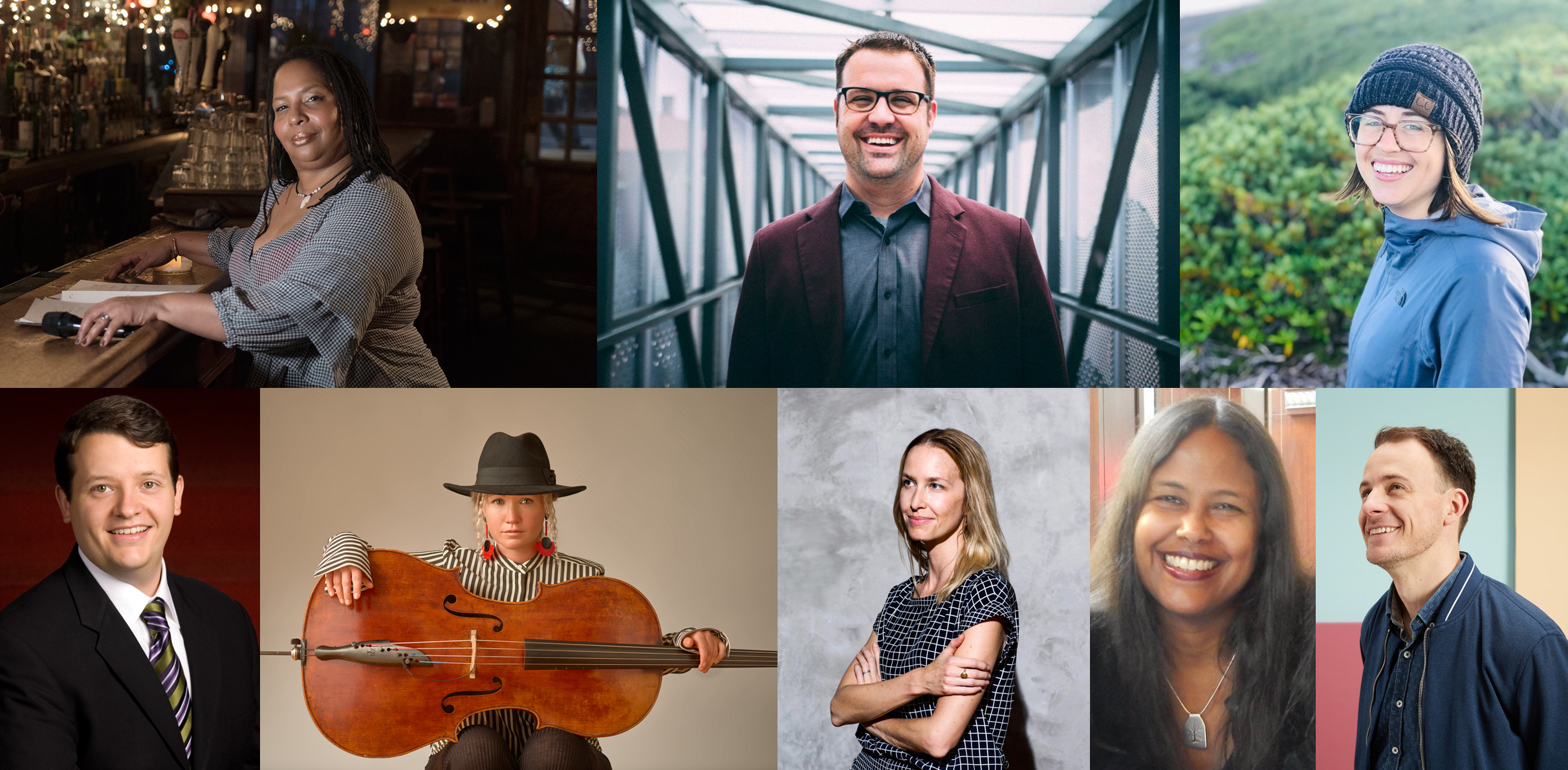
Top row: Fay Victor (photo by Kyra Kverno), Andrew Bliss (photo by Evan Chapman), and Katherine Balch; Bottom row: Roger Weitz, Ashley Bathgate (photo by Bill Wadman), Kate Nordstrum (photo by Cameron Wittig), Alanna Maharajh Stone, and David Skidmore.
2. How have cancellations of events affected your income at this point (payment for performances/talks, etc., performing rights fees for performances of your music, etc.)?
Alanna Maharajh Stone: The cancellations have certainly impacted my income but I have a little savings so I am alright for the time being. I’m very worried about everyone in the music community and our wider communities at large about the impact of the cancellations and closings. It’s the right thing to do for sure as this virus must be mitigated. I think we all need to be especially kind and look out for each other to get through this and we shall get through together. We’re all interdependent to make a vibrant, flourishing, creative world.
“We’re all interdependent to make a vibrant, flourishing, creative world.”
Katherine Balch: I am definitely losing performing rights fees, but those are not a substantial part of my income. So far, I am missing the second installment of a commission fee as a result of a postponed performance. I am very fortunate to be a graduate student with a stipend from my university.
Andrew Bliss: My wife and I have repeatedly confessed how grateful we are to have salaried positions at major universities, which have allowed for a constant sense of security in our lives. With that in mind, we do keep a to-the-dollar budget each month, and have had to make a number of changes as all of our other income has slowly evaporated due to cancellations.
Fay Victor: The impact is significant but is survivable so far. If this is a temporary situation, I should be OK. We’ll just have to see.
Roger Weitz: It is still too early to know all of the financial ramifications of this decision.
Kate Nordstrum: I am fortunate to have a stable salary via The Great Northern. The Liquid Music performances that were cancelled mean no income for myself or the artists, even though months of work have gone into project development, rehearsals, and business administration leading to the events. I am still waiting to see if the flights I purchased will be reimbursed by the airlines.
David Skidmore: Third Coast Percussion has seen several cancellations of scheduled concerts and educational activities, and we expect we might see more still. We are fortunate to a certain degree because over the years we have made a point of setting aside money in the event of an unexpected budget shortfall. That said, this unprecedented situation presents an existential threat to all arts organizations, and Third Coast is not immune to that. We stand to lose an extraordinary amount of money (by our standards at least) should our performance fees for the rest of this concert season not come through. We have salaried employees with health benefits through TCP, there are contractors who rely on us for their livelihood, and there are composers and guest artists who rely on the commission fees and performance fees that we offer for their work.
“This unprecedented situation presents an existential threat to all arts organizations.”
Ashley Bathgate: Right now, I am in danger of losing about 1/3 of my income for the year. My gigs this month were cancelled. I will almost certainly lose all of April’s income and it’s looking more and more likely that May will fall apart as well. At that point, I will be in the position of not being able to pay my bills or my debt obligations, like student loan, vehicle loan, instrument loan, etc. I will have to dip into savings that were put aside for my future, specifically a retirement fund, because as a freelancer, I don’t have a pension to speak of. These cancellations have the potential to ruin a lot of people’s lives, or at the very least, leave a significant dent.
That said, I am heartened and inspired to see people rallying. Funds are being established for relief, people are sharing information on what’s already out there, they are asking each other if they need help and sending messages to cheer you up and let you know: you are not alone. I saw one person on Facebook offer up two beds in his apartment today to anyone who needs it.
We are continuing to perform (and some venues are allowing us to continue to perform) without a live audience so that we can still be paid and so that people can hear/see our work by watching a live stream of the show. Audiences are donating their tickets back to the venue instead of getting a refund. I am seeing presenters promise to fulfill their agreements and to pay artists regardless of whether the concert happens or not. It’s clear that everyone: artists, venues, presenters, and audiences alike want to help find a solution.
3. What kind of arrangements have been / should be in place for you to ensure a fair balance for these cancellations? (There are clearly multiple sides to this, among them the artists’ side and the venue’s side and we’d like to offer both perspectives in order to arrive at something approximating a possible best practice.)
Alanna Maharajh Stone: On a personal note, one of the cancelled concerts will turn into an album release campaign project at a later point so I’m very thankful for that.
I would ask arts organizations presenters to pay their scheduled artists their fees even if the institutions have to cancel their performances due to Coronavirus precautions. Freelancers all depend on the work they have planned and scheduled. Things can get rescheduled and the artists will appreciate the care, thought, and respect they are displaying, not to mention the ability to afford to survive. Arts orgs have annual budgets assigned already. This would not be hard to do and go a long way towards easing the financial pain I’m seeing in my colleagues’ social media feeds. I know smaller presenters will find this very hard to do but I applaud ones such as Hotel Elefant and HERE Arts Center for doing this as much as they can. Time In is also finding ways to employ their artists remotely. Tech and social media are key tools in bringing us together and helping ease the feeling of isolation. Alternatively, venues can also stream the performances to global audiences without having an in-house audience present. This way the show can go on such as with Miller Theatre with a recent concert. Several other venues are doing this as well.
For artists having gigs cancelled on them, I would recommend trying to negotiate retaining part or all of their fees in exchange for a new performance date. For future projects, build a deposit into your contracts that is non-refundable so there is some cushion should things not work out as planned through no fault of yours. Do not be afraid to negotiate and ask for what you want – this is your livelihood.
Katherine Balch: I think it’s really complicated because a lot of presenting institutions are also operating on bootstraps budgets. I do wish there were some sort of insurance in place for performers who have spent time and energy into learning a (often very demanding) new piece of music only to find out they won’t be paid the days leading up to the performance. Composers are often paid 50% fee at the signing of a contract and 50% upon delivery of the score or the premiere performance. I wonder if such a policy could be in place for freelancers for emergency circumstances like these.
Andrew Bliss: My feelings are often divided on this topic, because I work both as a performer/educator, and I also run the contemporary music organization Nief-Norf. So I can easily see and empathize with the challenges that presenters face. Up to this point, all of my cancellations have simply been offered to be rescheduled for the future.
That said, this current crisis has prompted a great deal of thinking about the future. I wonder what types of safeguards we can implement in the future to mitigate some of the difficult decisions we are facing today. In my time in academia and the non-profit sector, I’ve hosted dozens of artists and ensembles, while actively touring as a soloist and chamber performer myself. I’ve seen artist fees and artists’ contractual rigor range widely during this time. I have concluded over the years that almost all musicians have a “portfolio” career, with income coming from various sources and those obligations representing various percentages of their time obligations. I mention this, because the percentage that residencies/appearances/performances play in an artists’ overall portfolio, seems to have a strong influence on their approach to fees and contracts.
Many musicians are very strict about receiving and adhering to contracts, including price guarantees, though I think we’ve learned this is probably a topic we need to re-visit. Earlier in my career, I might have considered that position to be too strict and inflexible. From personal experience, however, I realized how critically important these contracts are to a musician’s livelihood. Flexibility is vital, of course, whenever possible. But it’s also important to write that flexibility into a written agreement or contract, rather than having to decide just-how-flexible you can afford to be in an ad-hoc way. I doubt that anyone’s contracts had a “pandemic clause” beyond force majeure, however, so we are all on shaky ground at this point.
Fay Victor: Fortunately, I have other work as an educator that balances out my income. Some venues can afford to pay out for the shows (I mentioned one is doing so in my case). I understand through that a small venue simply may not have the money to pay out to everyone. I’m not sure how best to handle it. Everyone has been kind and accommodating as much as they can be. The communities I work in all understand how precarious this situation is for everyone.
Roger Weitz: Most of our contracts have cancellation clauses and/or force majeure clauses built in. In most cases we are choosing to ignore those clauses and will pay the artists their full fee. The artists committed to us and we committed to the artists. The contracts required the artists to hold the festival time period for us and we know that it would be virtually impossible for them now to secure new engagements to replace the ones that we have postponed.
“In most cases we are choosing to ignore force majeure clauses and will pay the artists their full fee.”
Kate Nordstrum: I think artistic teams should be able to keep project deposits. There should be a recognition that this down payment goes toward development of the work — it is not held in a safe until the performance premieres. Presenters who do not do deposits should reconsider, as it can be a hardship on artists. Presenters should also take responsibility for flight purchases or reimbursements if an artist fronts this expense. My experience is primarily from the presenter side, and I still agree with all of the above! As a presenter, I do sympathize greatly with the stress that arts organizations are under, but they are in a better position than individual artists to find a way to recover costs.
There are more protections from institutions around commissioned work, which is a good thing.
David Skidmore: All of our performance contracts have what’s called a force majeure clause, which I like to lovingly think of as the oh shit clause. In the event of something catastrophic and out of the control of the artist and venue, what do we do? These contract clauses can provide some helpful guidance in situations like this.
That said: the performing arts world, and the new music world as a subset of the performing arts world, is a relatively small community of people who are in this because they love this art and they believe in it. I sincerely hope that everyone is doing their part to both take care of themselves and their loved ones, but also to think of the larger communities that they are a part of. Think of those who are more vulnerable than you are, and do everything you can to help them.
“I sincerely hope that everyone is doing their part to both take care of themselves and their loved ones, but also to think of the larger communities that they are a part of.”
Ashley Bathgate: I can’t speak to the presenting side, but I think we need to be having this conversation more openly and more often. Over the past few days I’ve gotten a clearer picture of what everyone is going through. That makes me more informed, more empathetic and more generous. I believe in transparency. There can always be more of this in life and certainly in the art world. We need to vocalize more and we need to put our heads together. In this instance, it’s on a case by case basis. Bill Bragin said it in a nutshell: it is a question of who can bear the loss.
From my perspective, if we had a clearer protocol to begin with, this wouldn’t be as much of a gray area for someone like me. If I had contracts for every gig I played, with an agreed upon language, including the language of the force majeure clause, a deposit up front and a cancellation fee in place, I’d at least have somewhere to start. If that was my standard, I would not feel so disempowered at this moment. Right now, I am at someone else’s mercy. That person is also at someone else’s mercy. Though, one can argue that contracts are meaningless if the people behind them don’t respect or are subsequently unable to honor the agreement.
When that happens, are we legally protected?
I don’t know too many freelance artists with lawyers on retainer. I don’t know too many of us (myself included) who even understand the law when it comes to things like this, or copyright, or intellectual property, etc. What about insurance? What’s that, does that even exist for us? Gig insurance? It is becoming less and less feasible in our DIY, click of a button stream-culture, to have a team around you who can look out for you in these ways. I cannot afford to have management on retainer. I cannot afford to hire a publicist, which costs per month what I would pay in rent. I cannot afford to pay a record label to release my album, which I spent thousands of dollars on and which might sell 500 copies, if I am lucky. I can’t afford to hire a development director to fundraise for my next project. So we are learning to do all of these things ourselves, on the fly, while making art, while taking care of families. I spend most of my “work” day on a lap top, not my cello. The system is becoming harder and harder for artists like me, who were told in school to just practice their instrument, be great at what you do and you will get a job. It’s not that world anymore and we aren’t preparing the younger generation for the world we exist in. It’s another form of preparation in which we are behind.
For the moment, I would say priority number one is a little extra sensitivity and kindness, all around. Number two is that if a venue or a presenter is able to cover half or the whole of a musician’s fee for the work they are cancelling, they should, as long as it does not put them in danger of going out of business themselves. If that is not possible, I think every effort should be made to honor the agreement and reschedule the concert or work as soon as possible. Outside of that, there are relief funds we can apply for and I don’t think we should be afraid to ask for help, whether that’s in the form of money, housing, food, child care, really anything. Ask for help. People want to help if they can.
Once we get through this crisis, I think there are some harder conversations to have. It’s not just about how we can help during this difficult time or how we plug the dam, it’s about a bigger picture and, hey now, “a greater coming together”.
I think artists like myself would do well to vocalize the things they want and need more often and to just walk away when it feels wrong for them. There will be other opportunities and there are lots of human beings to collaborate with in the world. The number one thing I come up against is my own fear. I fear quoting too high a price for my work because: x, y, z. I fear being disagreeable because I will not get the gig, it will go to the person who is agreeable or more “grateful”. I fear suggesting alterations in the language of the contract because it will create tension or delay going forward. I fear speaking up because most people around me don’t speak up. No one wants to rock the boat. No one wants to lose work they have by asking for more. No one wants to be disliked or to have a reputation for being difficult. Presenters and contractors are Gods in this business, they can make or break our year, sometimes our career. And for presenters and contractors, well, there are Gods in their world too. Beth Morrison described it as a food chain, we are all part of the same food chain. It’s true, we are part of the same ecosystem. We’re also part of the same species, so, let’s try to communicate more instead of fighting for our own survival, because we can.
“I think artists like myself would do well to vocalize the things they want and need more often and to just walk away when it feels wrong for them.”
When I think about it, I fear most everything about my job, except for the part where I make music. This comes from my experience. This comes from hearing things like, “that’s just the way it is” and “well, you’d do it for free, right?” and “this is the life you chose”. This comes from getting offered gigs with no mention of the pay or terms, only “do you have these dates free?”. This comes from receiving offers that are basically “take it or leave it” with no room for negotiating and a built in protection for the other party, not me. This is from going into temporary credit card debt to pay for flights that a presenting organization will not book themselves or reimburse up front, based on “policy” because it’s too big a risk for them?! This is from playing show after show, where despite having an agreement in place and going through every hoop imaginable to make it operate smoothly, the end result is me spending extra hours (unpaid) emailing and phoning to figure out why my payment is still being withheld, months later.
Saying these things out loud leaves me feeling bit vulnerable, but I know I am not alone in my experiences. I know we talk about it among ourselves, within our close circle, but we won’t make a habit of talking to those outside our point of view, or collectively. If we could all be so forthcoming and generous on a regular basis the way that I am seeing right now, we’d be better off. So please, let’s continue these conversations, let’s have more webinars and town halls and group chats. Let’s all make ourselves more aware of each other’s perspectives so that we can emerge from this crisis more informed, more empathetic and more generous going forward.
4. What precautions have you been taking personally to ensure your safety as well as that of your family and the artistic collaborators with whom you most frequently work?
Alanna Maharajh Stone: Usually I work from home anyway so it’s not hard for me to isolate from others communicating by phone or email. I really think it’s integral for everyone to heed the social distancing and isolate as much as possible. This seems very counterintuitive to hear myself say that as I much prefer face-to-face meetings but we are living in extraordinary times. We must flatten the curve and stop the spread of the virus so the US does not end up in a worse situation than Italy and China. And it is crucial to support capable politicians who are looking out for everyone and taking active measures to help communities affected by this. Health care is a human right. Testing and care for coronavirus should be free and easily accessible throughout the nation. This whole crisis has illustrated why we need Medicare for all.
Katherine Balch: Aside from the CDC recommendations, in terms of my financial well-being, I’m budgeting and have made a spending plan for the next few months. I’m also researching where is best to make (modest) donation(s) to support relief for freelance artists. In terms of mental health, I’m trying to come up with a daily schedule, getting dressed instead of staying in my PJ’s, those kinds of things. It helps to be teaching online, actually.
“I’m budgeting and have made a spending plan for the next few months. I’m also researching where is best to make (modest) donation(s) to support relief for freelance artists.”
Andrew Bliss: I’ve been working from home since basically March 1 and we’ve moved all Nief-Norf meetings to online conferencing. Everyone is working from home. My wife and I have made rigorous spreadsheet schedules for ourselves and our two young children to try and find a balance between giving them varied activities and attention, and continuing to have time to ourselves for various work-related activities. We stopped leaving the house over a week ago for anything that is not strictly necessary. At work, we had made preparations for how we might substitute players who weren’t comfortable or couldn’t attend our performances at the Big Ears Festival, which ended up being cancelled anyway. We are now looking ahead to the Nief-Norf Summer Festival (nnSF) in June and making plans A, B, and C, keeping in mind how we can best (and most safely) serve the community that we have built for the last 10 years at nnSF.
Fay Victor: We’re beginning at home to plan for being there more! Stocking up on necessities just in case I or my husband become ill. I’m washing my hands as much as possible, keeping surfaces clean and eating healthy. I found an incredible TedTalk about the virus that I’ve referenced back to a few times: https://youtu.be/Fqw-9yMV0sI.
Roger Weitz: We stopped all rehearsals and planned activities in an effort to lower the transmission of the virus, to help “flatten the curve.” Within one business day of postponing the festival and sending guest artists back to their homes, we closed Opera Omaha’s administrative offices and the staff are working from home to the extent that their job duties will enable them.
Kate Nordstrum: We are all at home… texting, Skyping, creatively plotting, encouraging each other, organizing, cooking, reading, tending to family. I don’t know anyone taking their chances with regard to personal health and safety. I am on the lookout for artist and arts org resources to share.
David Skidmore: Washing our hands like a maniacs more than we ever have, being especially mindful of our bodies and germs should we find ourselves in contact with anyone who we perceive as possibly at risk, and meanwhile erring on the side of caution and assuming that anyone might be a person at risk who does not outwardly present as such. It’s worth remembering that losing a paycheck, or a month’s paycheck, or several months’ paychecks is a tremendous burden, but losing a loved one does not even compare.
Ashley Bathgate: I am staying home right now as much as possible. Trying to keep stress and anxiety to a minimum. Less risk taking, more healthy choices. I am driving more, avoiding public transportation. I am sacrificing things I would consider normal in terms of socializing or self-maintaining, trying to do more of those at home, which also saves money. I am intending to follow through with concerts that have not been cancelled yet. I am a bit nervous about it but I think we should try to go about our life as we normally would. Realistically, I need to work to make some money. So there will be some risk taking.
Then there are all the little things which you never think about like washing your hands more, touching your face, touching other people, disinfecting things, cleaning up more. It doesn’t feel great to be checking yourself or obsessing over it, but I am trying to remember it’s either something that will be temporary or something that will become a good habit that I won’t think so much about eventually. This has also triggered me to get in the habit of not wasting things. Don’t waste time, don’t waste energy, don’t waste food, re-use, recycle, up-cycle, less is more, keep your carbon footprint low. There’s time to pay more attention to that.
5. What are your biggest concerns/fears about the uncertain landscape we are currently in?
Alanna Maharajh Stone: First and foremost, that family, friends, colleagues – all of us – are at great risk. I fear that people won’t take this seriously and understand the gravity of the situation – the importance of isolation; that the economic impact of this wide spread shutdown will hurt us all ultimately. I want to do as much as possible to help others as I know many colleagues are already feeling the pressure of how to afford to survive. I know we will all make it through together. And I encourage people to ask their networks for help when it is needed.
It is heartening to see the real sense of community we have and active measures being taken to assist each other. I am especially grateful to Equal Sound for starting a Corona Relief Fund for artists who have had their gigs cancelled. They are raising money to help artists in urgently need. In a couple of days, they have already received $50,000 in funding requests. We need to help get the word out about this fund on both the donor side and the artist side so they will be able to assist as many artists as possible.
https://equalsound.org/project/corona-relief-fund/
New Focus Recordings is also waiving the label’s share of sales from their recordings on Bandcamp through April so their artists can receive the full amount of sales from their work. I would heartily encourage everyone to buy some new music to support these and other independent artists on this label and beyond.
https://newfocusrecordings.bandcamp.com/
And I would also encourage donors to generously support our arts organizations through these difficult times. It is really vital to help keep everyone afloat.
Katherine Balch: My concerns are that my friends will suffer massively emotionally and financially with all these cancellations, and that collaborations and engagements I’m looking forward to will be cancelled or postponed. I’m concerned that the organizations that are the bedrock of new music, which tend to have more modest budgets and infrastructure, will suffer irreparably. I’m also concerned for my students, many of them are feeling a lot of anxiety about the situation, and worried about my own limitations and shortcomings as an educator during this period.
Andrew Bliss: Amidst the current chaos, it’s difficult to find a signal in the noise. It’s hard to focus on things like “work” or music making when there are threats to our basic health and safety. Typically this time of year, I would be finalizing the 2020-21 season, but discussing those possibilities with presenters right now somehow feels a little tone deaf. I’m worried about the disruptions artists will face into Spring 2021 for this reason. As a teacher, I imagine there will be similar regrouping that must occur in the Fall term, and that’s assuming that COVID-19 has abated by then.
“Typically this time of year, I would be finalizing the 2020-21 season, but discussing those possibilities with presenters right now somehow feels a little tone deaf.”
Fay Victor: Right now, I’m just processing the loss and the work to recoup costs i.e. flights, hotels, etc. I feel that our community of musicians will figure out performance alternatives. There’s already the technology to support streamed performances – that may be the way of the future for now.
Roger Weitz: If we cannot serve our community by creating art then there is little reason for the community to support us. We must find new ways to serve the community and new means by which we deliver our art. We are currently brainstorming and mapping out new creative content that we will share on line.
Kate Nordstrum: I’m concerned that arts funders (individual and corporate in particular) will fully pull away until the COVID-19 dust settles. No one knows when that will be. But we’ll need the arts and cultural sector to be stronger than ever when we emerge from this separation.
David Skidmore: We sincerely believe that the extreme measures we are taking as a society, though indescribably difficult in the short term, will prevent the worst case scenarios. We are concerned for the health and safety of everyone, and we are concerned about the hardships faced by so many of our colleagues and friends in the United States who have no financial protection against cancelled work, and a weak and ill-equipped social safety net to fall back on.
Ashley Bathgate: This virus is a pandemic, it’s global. Seems huge, right? It’s also small. This isn’t the end of the world. We will get through this. My fear is that we might not learn from our mistakes. We might say we’re going to take things more seriously from now on, things like climate change or preparation for another disaster like this one. Once the panic is over, will we forget this terror and motivation we are feeling and just allow things to go back to normal? If this virus brought anything up for me, it’s that I keep complaining about things that are broken or things that are unfair, but I don’t do enough to enact change. I mean change from within as much as change from without. My fear is that I will not act enough. I want to do the things that I keep saying I will do, and that includes thought toward the ways in which we value ourselves and those around us.
6. How do you see the current situation affecting your artistic practice?
Alanna Maharajh Stone: It’s a time for more creativity, ingenuity, and solidarity than ever before. Good to see artists going online to do FB live broadcasts of home performances. Perhaps they can also include details to donate so people can help support them directly. I myself plan to do a bit more with my own creative work as a photographer and a director in addition to my music marketing and publicity projects. I’m currently working on some album release campaigns and a video premiere campaign for clients so the timing actually works out for me not being out and about thankfully.
Katherine Balch: As a composer with a slightly slower creative metabolism than my performing colleagues, I think the answer to that question will emerge in the coming months or beyond.
Andrew Bliss: It has slowed it down considerably. I am on professional development leave (i.e. sabbatical) from the University of Tennessee at the moment, and now have a 7 and a 2-year old home, likely for weeks, if not months. We have no family anywhere nearby so it’s the four of us in the house until further notice. Anyone who has read Cal Newport’s “Deep Work” knows – the only “deep work” happening these days is with Lego in hand. I don’t see a clear way to complete my proposed projects for the university in this environment, but sometimes that is not the most important thing. As I mentioned, my wife and I have carved out personal time each day, and are handling things the best we can while focusing on our family.
We make allowances for our students every semester due to outside circumstances, and have to remember as professionals that we can do that for ourselves as well. I’m enjoying time at home with my kids, trying to get to those projects around the house (work-related and otherwise) that I normally can’t get to, and making the best of the new circumstances of working 100% remotely. I may not have as much practice time, but every situation provides some opportunity. So I’m clearing some clutter, organizing some projects and plans, and clarifying pathways for future months and years. I’m lucky to be able to “focus on the bright side” at this point, and I’m grateful that our inconveniences, thus far, are mostly just being housebound with a family I love.
“Online learning might offer students more autonomy and greater accessibility. That said, it’s hard to learn anything amidst a public health crisis.”
I’m also curious to see how this situation impacts a younger generation. Specifically, as a professor, I’m curious to see what giving our students almost all of their time back, does for their learning. There are obvious downsides to the situation we are in, but there are potentially some positives as well, since online learning might offer students more autonomy and greater accessibility. That said, it’s hard to learn anything amidst a public health crisis, so I think professors and students will be learning as we go together.
Fay Victor: More free time in the short term will be enriching for my artistic practice! I can practice, compose and write more and I plan on doing just that. Also, if some musicians are willing, a great time to get together and work out ideas.
Roger Weitz: The vast majority of our artistic practice calls for artists and audiences/participants to gather in the same physical space: performances, workshops, masterclasses, events, etc. We are exploring new ways to document and share the work of our artists and will plan to use our website and social media channels to deliver that content and engage with our audience.
Kate Nordstrum: This is as a great time for project concepting and organizing. I see my responsibility as pulling together teams to do incredible work in 2021 and beyond. As an Executive Director as well as Artistic Director, ED duties usually take up more time than I’d like. This is an opportunity to lean into the creative producer side of my work more.
I also need to continue to be an advocate for artists and new projects to potential funders, making the case that post-pandemic, the hunger for new art and cultural events will be insatiable. We need to continue to invest now for the work of tomorrow.
David Skidmore: Too early to tell, but I’m hopeful this will be a time that reminds everyone how precious live performance is, and how easy it is to take it for granted.
“I’m hopeful this will be a time that reminds everyone how precious live performance is, and how easy it is to take it for granted.”
Ashley Bathgate: If there’s any silver lining here, it’s that during these times we find every reason to focus on our craft, whether it’s to send a message of hope, to shed light on what needs improvement, to bring people together, or to find time to one’s self. These events give us more purpose and drive. They cause us to reflect and to think on our toes. As awful as it is for everyone, I know I am not alone in saying that I have already thought of so many things I can do with this time. I can read, research, make plans, make art, think, relax, cook, be with my family, and reconnect with friends. I can be a sponge. I can be a leader. I can be a better human being. I want to perform and to work, don’t get me wrong. I’d go crazy if I couldn’t perform anymore. But this “free” time is exactly what we are always wishing we had more of. So I am going to fill it with everything I haven’t had time to do, and that includes making music.
7. What are some alternatives that can ensure that we can continue to advocate for our own artistic work and that of others during this extremely uncertain time? What kind of support would enable you to do that?
Alanna Maharajh Stone: I will always advocate for the artistic work of colleagues and community as well as encouraging others to do so. I think what will help artists the most right now is Emergency relief funds without a long processing time; they are really critical at this point. Perhaps New Music USA can aid with this as well as the NYC Department of Cultural Affairs and other funding sources? New Music USA can also appeal to local and national politicians to push for more emergency aid for the creative community. Here are some other resources that may be useful as well.
NYC Covid-19 Musician Resources and Support
https://www.facebook.com/groups/nycmusicianscovid19/
Online Music Lessons and Teachers (NY Metro Area)
https://www.facebook.com/groups/OnlineMusicLesson/
Covid-19 Freelance Artist Resources
https://covid19freelanceartistresource.wordpress.com/
Katherine Balch: Government support for the arts. Some type of insurance plan for the gig-economy. In our own lives, finding ways to connect and engage with music making though tuning into livestreams, facetiming with colleagues, donating to arts relief funds if within ones means to do so.
Andrew Bliss: I think we need to offer (and ask for) as much support as possible. A few things I’ve tried to do: Make a phone call to a friend or collaborator and check in on how they are doing. Schedule a video conference with a fellow musician and scheme up some future projects. Support online initiatives that you think offer value and are perhaps, even breaking new ground that we might be able to incorporate into our in-person practice when COVID-19 seems to have slowed down.
I think many of us are aching for live, in-person collaboration during this time, but deep, meaningful, one-on-one or group conversations, meetups, and projects, though happening remotely, can offer friendship, artistic support, and creation that could last far beyond 2020’s quarantine.
Fay Victor: There’s much to think about regarding advocacy for our work as artists in this shifting climate. For now, perhaps its a good idea to wait it out for a bit. What we can all do now is support artists by purchasing any product they have. Support artists that give shows over the internet or have small musical gatherings. We’re thinking of having small house concerts that we can stream from our living room. These are scary times yet the ability to be creative means we’ll make the best of the situation. We’ll figure it out, perhaps creating innovations that will carry us even further. I understand that pandemics such as what we’re experiencing now with Covid-19 will be in our future more. It is better we learn now how to adapt to our present and for what’s coming. This gives me great hope.
“These are scary times yet the ability to be creative means we’ll make the best of the situation.”
Roger Weitz: Our alternatives are to bring more of our community online, so building the platforms and interconnectivity would be our first challenge.
Maybe virtual convening through New Music USA, and paying performers for salon concerts? If not directly, perhaps New Music USA could publish some “best practices” for companies seeking to engage in this way and how to direct donations from on-line viewers directly to artists?
Kate Nordstrum: Seeing, and hearing from, art institutions/individuals/sponsors who are able to continue to plan and invest in the future would help producers and artists know it’s okay to invest their time right now too. I certainly understand that is difficult in the immediate moment. We should all remind ourselves and our loved ones daily to take a breath… These days of confinement and restriction will feel long, and we are going to need patience (and more time) to see clearly how to navigate. Everyone’s lives are on hold right now — the preciousness of our days is hitting us hard.
David Skidmore: For now we’re very focused on providing as many meaningful musical experiences online as we can. This will include at least TCP performing, perhaps with some of our guest artists as well, and we will be performing a wide range of music from a wide range of composers. It’s way too early to tell how it will work or how successful it will be, but at least it will be us doing what we do best and putting it out there for the world to experience. As always, we hope people will watch and listen, and we hope people who believe in what we’re doing will support this work that we believe in so much.
Supporting artists in any way that you can is always important and rewarding. Given the current state of things, mutual support is now vital to the survival of all artists.
“Mutual support is now vital to the survival of all artists.”
Ashley Bathgate: I have more questions than answers to this one. It’s all about online I think. We’re headed that way already: Patreon, Kickstarter, Indiegogo, YouTube, social media platforms, live streams, online performances, living room concerts, VR, Twitch. My question is: are we ready for monetized streaming of live performances? Is there a market for that within crisis-mode? Is there a market for that beyond crisis-mode?
Patreon is probably a good place to start because it is in favor of the artist, it is exclusive and it is ongoing. Create your site, invite your followers and supporters to subscribe and pay what they wish, monthly. If I have 100 people who will pay $10/month to hear me speak, sing, play the cello, or other, then that is $1000 of income I did not have before. It’s tough to build a following, and you have to generate content more frequently, but I think it’s a great way to maintain control of your work and it functions for people who don’t want to or can’t be on the road all the time. During this particular time, I would feel the most comfortable asking for help this way where there is an exchange of some sort. I want to give back as much as I want to receive help.
We can continue to cultivate donors and presenters who are willing to take more risks. New music is not a proven commodity. There is more hesitation both in programming it and funding it. Because it’s not something tangible that you can hang on your wall or bring home, that makes it harder as well. How and where can we find patrons who are willing to underwrite entire new music festivals, who will fund larger commissions, records and concerts the same way that they do for pop or classical music?
Videos and albums: how do we take control of our content so that we can actually profit from streams and downloads as opposed to making fractions of a penny?
If we move to teaching online, what is a setup and connection that can function? That’s one of the questions circulating the most right now. What’s the best technology both available and affordable for teachers and students to conduct a lesson successfully this way?
Aside from funding, I think we benefit tremendously from community building. In a big city like New York, it’s hard to feel community sometimes. Nobody has time for you, you don’t have time for them, we’re all “so busy”. Freelancers are on the road all the time trying to make rent for a home we are never in. It’s bonkers.
What’s ironic is that I have connected (and reconnected) with more people over the past week than I have in the last year altogether. Aside from wanting more of that in general, I kept thinking what if there was website or forum where we could pool our talents, beyond this crisis? Here’s a site with artists, sound engineers, filmmakers, stage managers, presenters, producers, development directors, entertainment lawyers and anyone else you could think of. You would receive a private message setting up a time to speak. Whether it’s donated time or the barter system or a small fee per hour, this is now an online community designed to help each other. We’re not on retainer for hundreds and thousands of dollars a month, we are there to answer a question, look over a contract, write a letter, pitch an idea to, read through a composition, listen to a speech, guide you through a Pro-Tools conundrum, help you start a website, or a 501(c)(3). All of these things I can research online or guess at, occasionally I have a friend to help. In this scenario, I can be as much helpful as I am being helped, while being a part of my community, as opposed to desperately trying to catch up to it or squeeze it in through the cracks.
“We need more access to each other.”
I feel we need more access to each other, the barriers have to come down; we need fluidity and openness in a time like this. If I must be a cog in the wheel, I want to know what the wheel looks like, what the car looks like, the road, the total landscape. If we remain satisfied with partial views, we are never going to move the vehicle forward.


